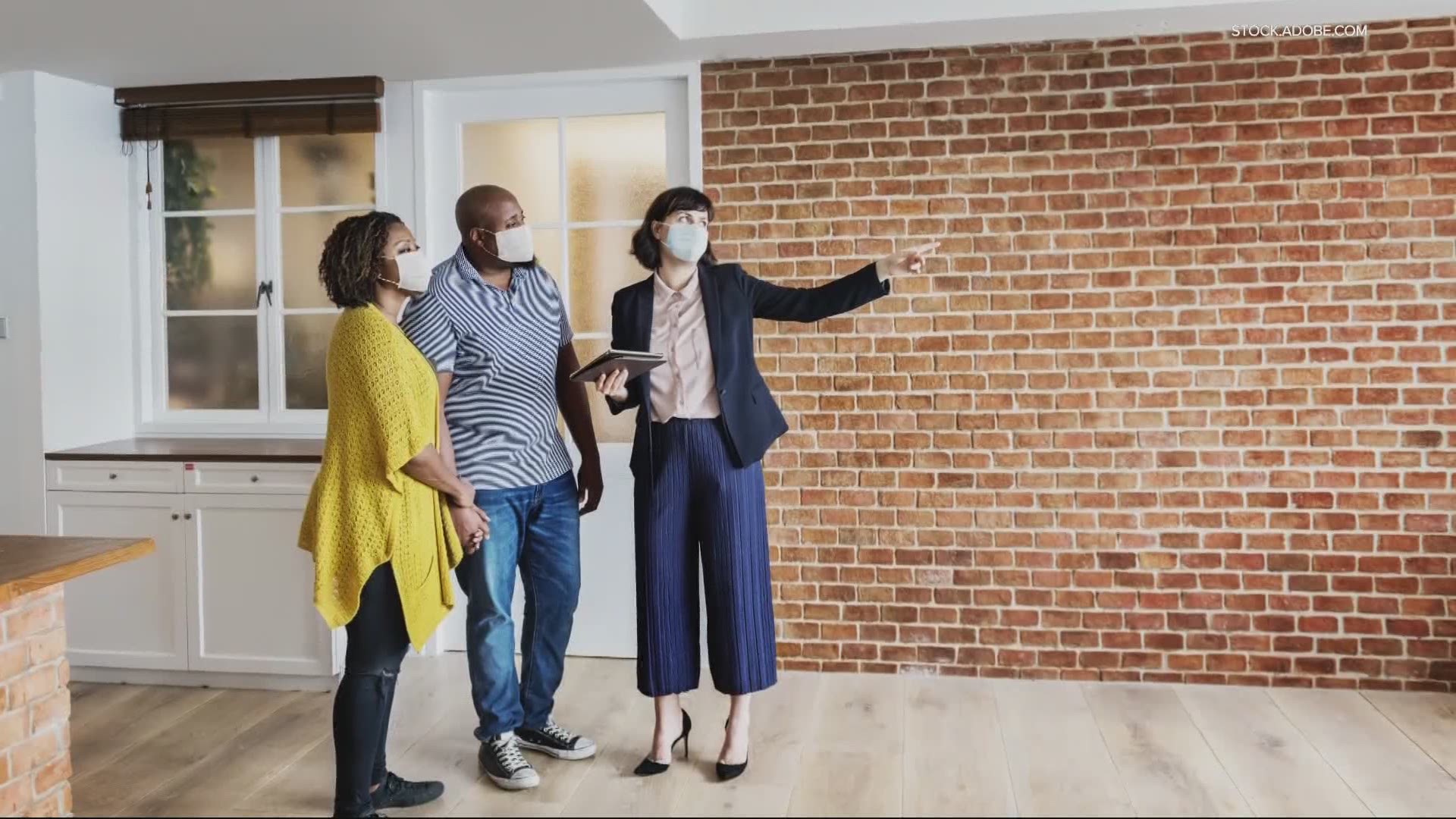PORTLAND, Ore. — More than a year into the pandemic, real estate experts say the housing market is hotter than ever, and buyers are left with many challenges to navigate.
Jennie Huynh grew up in Portland and bought her first home in November. She and her partner had to make offers on six houses before an offer was accepted in Hillsboro.
"Honestly really brutal," Huynh said of the months spent house hunting. "We were definitely having to throw some elbows to end up with the house."
Shannon Janssen, a realtor with Coldwell-Banker BAIN in Portland, said the market has not eased since it picked up last year.
"If anything, it has hit a fever pitch," Janssen said. "Homes are selling in one weekend...They're getting multiple offers."
She and other realtors explained because of record-low inventory, homes often sell for $50,000-$100,000 over asking price.
Experts believe that during COVID-19, more people working from home, on top of other family members, want more space. Buyers are desperate to beat out multiple competing offers with few houses on the market to choose from.
"We have buyers doing everything from waiving inspections to appraisals," Janssen said.
"From an insurance guy's perspective, that makes me really really nervous," said Derek Wing of PEMCO Insurance in Seattle.
Wing explained inspections before someone buys a property can reveal expensive problems, such as a damaged foundation. Insurance rarely will cover a buyer if problems like that are discovered after the fact.
"You're sort of stuck with it," Wing said.
"This is unprecedented in the history of the U.S. housing market," said Jeff Tucker, an economist with the national real estate website, Zillow.
His company's research shows many people held off on selling their homes during the pandemic.
"Now that vaccines are becoming widespread, that could really change," Tucker said.
That would mean more homes being put on the market by summer, the peak selling season.
However, even with increased inventory on the horizon, the number of buyers remains high. Millennials now in their 30s make up about a third of new buyers. They face this record housing shortage.
"It's all about supply and demand," Tucker explained. "We didn't really build enough homes on the supply side ever since the great recession ... It was like a storm that was ready to break at some point, and now it has begun."
The pandemic housing market differs from the 2008 recession in one key way: supply.
Janssen said the number of homes on the market during the recession was significantly higher, with many going into foreclosure.
"But now, if you're in a position where if you need to sell because you can no longer afford your home and can't make your payments, you're going to be able to sell," she said.
Experts expect home prices to continue rising between 5-10% next year. Low interest rates may also increase, adding to buyer costs.
Lumber to build homes is another factor. According the National Association of Home Buyers, lumber prices skyrocketed more than 200% since April 2020.
With all this in mind, real estate experts say waiting for prices to come down is not likely to benefit potential home buyers.
They suggest adjusting expectations, by searching for homes under budget and further away from city centers.
Another option is to downsize in favor of a townhouse or condominium.
"The downtown Portland condo market is the one place where it is actually a buyer's market right now," Janssen said.
Recent home-buyer Jennie Huynh offered advice from her own experience, suggesting people write a personal letter to the seller.
"This is who I am, and this is why I'm interested in your house, and how I'd like to make memories in your house," Huynh said. "It really can come down to if you can strike a chord with them personally."
While exhausted from the months of searching, ultimately Huynh is happy with her new home.
"It's something I'm grateful to have been able to get my hands on," she said.

